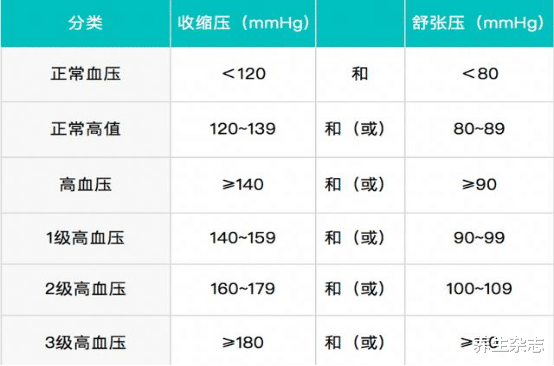When blood flows in the blood vessels, the impact on the blood vessel wall is called blood pressure. The highest value reached when the heart contracts is called high pressure; when the heart relaxes, the lowest value is known as low pressure.
The normal range for high pressure is 90-139 mmHg, and for low pressure is 60-89 mmHg. If blood pressure is too high, it can easily lead to vascular damage, triggering cardiovascular diseases such as stroke or heart attack.
Case: Sister Liu, 56 years old, runs a convenience store at the entrance of the community. She is optimistic, friendly, and can strike up a conversation with anyone. Usually, neighbors in the community prefer to buy things from her store. However, in the last few days, she has not been seen at the store.
After inquiring, it was discovered that Sister Liu had been experiencing unexplained dizziness and headaches recently, unable to sit steadily. Resting for a few days did not alleviate the symptoms. Therefore, she had to go to the hospital for a check-up. The examination revealed that Sister Liu’s blood pressure was as high as 162/107 mmHg, and she was diagnosed with hypertension.
Sister Liu was well aware of the dangers of hypertension and promptly consulted a doctor for ways to lower her blood pressure. After a detailed understanding of her condition and considering her lifestyle and dietary habits, the doctor provided her with detailed suggestions for lowering her blood pressure.
Upon hearing the advice, Sister Liu actively followed the doctor’s recommendations and began adjusting her lifestyle. When she went for a follow-up check-up six months later, her blood pressure had returned to 115/78 mmHg and remained stable, receiving praises from the doctor.
One bite better than 8 catties of celery, 56-year-old sister’s blood pressure drops from 162 to 115 in six months, doctor: commendable.
Generally, when it comes to lowering blood pressure, many people opt for celery. Celery is rich in potassium and dietary fiber, which aids digestion, relieves vascular burden, and assists in lowering blood pressure. However, due to individual differences in absorption capabilities and the limited nutritional content of celery, relying solely on celery for blood pressure reduction may not be practical.
In addition to adjusting unhealthy habits, Sister Liu supplemented her diet with a nutrient called “Pubei Shuangsuo,” which is as effective as eating 8 catties of celery in one bite.
“Pubei Shuangsuo” is a blend of over ten natural herbs such as Tianbei powder, cordyceps, kudzu root, cassia seed, cinnamon, and ginseng, meticulously researched and concentrated to be easily absorbed by the body, suitable for long-term supplementation in people with high blood pressure.
The Tianbei enzyme and polypeptides in Tianbei powder can effectively regulate metabolism, reduce sodium ion content in blood vessels, prevent water-sodium retention, and effectively prevent high blood pressure.
The cordyceps acid in cordyceps can be quickly absorbed by the body, effectively enhancing blood vessel elasticity, increasing vascular tension and aiding in blood pressure regulation.
The kudzu substance in kudzu helps promote blood circulation, increase blood flow, prevent intracranial hypertension, and related complications such as stroke.
For individuals with high blood pressure, it is advisable to follow Sister Liu’s example and supplement with 2 capsules of “Pubei Shuangsuo” in the morning and evening to effectively lower blood pressure and maintain vascular health.
Furthermore, the doctor advises: these 3 tips for lowering blood pressure are worth considering:
1. Avoid staying up late
Sister Liu also gave up her previous habit of staying up late and started going to bed and waking up early. Prolonged late nights can increase vascular fragility, making it difficult to control blood pressure as vascular constriction weakens. Staying up late can also damage the heart, leading to abnormal cardiac pumping function, causing fluctuations in blood pressure, and increasing the risk of cardiovascular diseases.
2. Supplement with Vitamin B2
Vitamin B2 plays a role in the body’s energy metabolism, strengthening arterial blood vessel dynamics around the heart muscle. During her blood pressure regulation, Sister Liu often consumed foods high in Vitamin B2, such as soy products, broccoli, cabbage, nori, and other foods, which have an auxiliary effect on lowering blood pressure.
3. Reduce salt intake
Sister Liu knew that salt is the biggest taboo for hypertension, so she maintained a light diet and avoided high-salt foods. Consuming too much salt can cause sodium levels in the body to exceed the limit, leading to water-sodium retention, increasing vascular burden, and inhibiting blood pressure cells, causing extreme constriction and elevated blood pressure.
Quick tip: People with high blood pressure should learn to control their emotions. Instability in emotions can easily lead to hormonal imbalances, stimulating vascular tissues and causing fluctuations in blood pressure. Therefore, it is essential to maintain a positive and optimistic attitude daily, release stress as much as possible, and avoid uncontrolled blood pressure for the sake of overall health.


